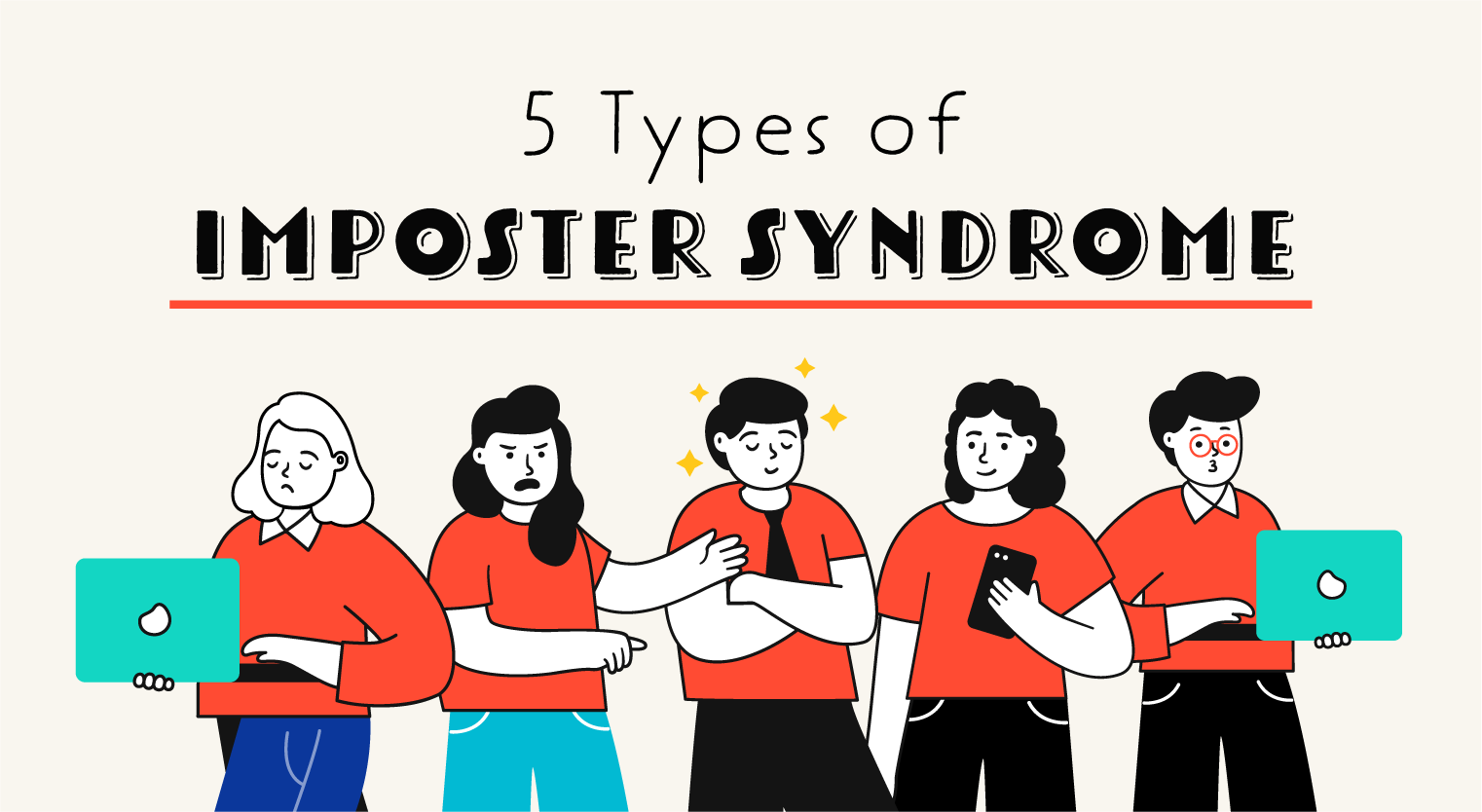Are You A Fake? 5 Types of Imposter Syndrome
Do you feel like you’re undeserving of all your accomplishments? The key to beat imposter syndrome is to truly understand which type you have in the first place.
Updated 25 May 2022

Do you often feel like you’re not good enough and believe that you’re not as competent as how others perceive you to be? Perhaps you feel like you only got to where you are through luck.
This is called an imposter syndrome — a psychological pattern where you doubt your abilities, accomplishments or talent and have a persistent fear of being exposed as a fraud. While imposter syndrome is usually related to intelligence and achievement, it can also be due to perfectionism and other social contexts.
Imposter syndrome can affect anyone no matter their work background, education level or expertise. Do you think you have it? We reveal the five types of imposter syndrome and how you can combat them.
#1. The perfectionist

Have you been called a micromanager? Do you doubt your capabilities when you fail to reach a goal you’ve set for yourself? If your answer is yes, you might be the type called the perfectionist.
This group is often called the control freaks because they want things to be done right. And in order for this to happen, they have to do it themselves. There’s a high amount of self-pressure and anxiety to be good at what they do. The perfectionists set extremely high expectations for themselves and feel shame or disappointment when they fail to achieve them — making themselves their own enemy.
How to battle this:
If you identify with this type of imposter, you’ll find that you seldom relish in success because you often feel you can do better. However, this behaviour is not only unproductive but also unhealthy. Try to acknowledge and praise yourself for every achievement, no matter how small to cultivate contentment and self-confidence.
In reality, no work will ever be perfect or flawless and that’s totally okay. You’ll be much happier and stress-free the sooner you’re able to accept that.

#2. The natural genius

If you’ve been called a natural “genius” since young, chances are you judge your competence of excelling in things based on ease and speed instead of effort.
You take pride in learning a skill or solving problems easily and quickly, so when mastering something takes longer than expected, you feel embarrassed and will quickly throw in the towel. Unlike perfectionists who set ridiculous expectations on themselves, the natural genius judges themselves based on getting things right on the first try.
How to battle this:
If this type hits close to home, try seeing yourself as a work in progress instead of expecting yourself to be good at things from the get-go. For instance, if you want to excel in class, focus more on studying rather than expecting to just be good at it. Admit that there are some skills that need improvement so you can work on it over time.
It takes practice and lifelong learning to master a skill and accomplish great things. Don’t beat yourself up over standards; instead, identify what areas need work so you can improve yourself over time.
Apply for university with EduAdvisor
Secure scholarships and more when you apply to any of our 100+ partner universities.
Start now#3. The soloist

Do you often feel like, in order to accomplish something, you need to do it on your own? If so, you have an imposter syndrome of the soloist.
The soloist feels as though asking for help means they are incompetent at getting the job done. They prefer to be independent and will often turn down help in order to prove their worth. When they get stuck, soloists tend to procrastinate to avoid admitting defeat. And if an achievement comes with assistance and help, they refuse to take credit for it and see it as a sign of failure. All that matters is “who” completes the task.
How to battle this:
As a soloist, bottling up your imposter syndrome feelings can be overwhelming. Share them with a close friend so they can help you find solutions to mitigate your negative thoughts. Try to partake in more group projects and recognise how some skills are passed down from others and not created internally. You’ll learn that collaboration offers more benefits than working alone.
#4. The superhero

You can easily spot the superhero by how they spend their time long past working hours to get everything done, even if they didn’t have to. They’re also considered reliable to their peers because they can handle just about anything.
However, this type of imposter is convinced they’re not as good as their real-deal peers, so they tend to work twice as hard just to measure up. Most superheroes are workaholics who are addicted to the validation that comes from working and not from the work itself. They need to be assured that they’re accomplishing something or else they feel like a phoney. Not only will this overload cause burnout, but it can also strain relationships.
How to battle this:
Unable to accomplish something doesn’t mean failure or incompetence. See it as a learning opportunity on how to improve rather than beat yourself up. It’s also important that you take constructive criticism as a learning pointer and not as an insinuation that you’re inadequate.
No one has the power to make you feel validated other than yourself. So, if you think you did a great job, give yourself a pat on the back instead of waiting for someone to give you approval.

#5. The expert

The experts are considered the knowledgeable perfectionists. On top of having to get things done right, their expectations to know everything also sets the bar ridiculously high.
But don’t get it wrong — the experts take pride in being a know-it-all. They constantly seek new information in order to prove their credibility of being a problem solver. However, their biggest fear is being exposed to having lack of knowledge or experience. A minor slip up of information can lead to embarrassment. Hence, they constantly seek for more knowledge instead of completing a task, which is just a disguise for procrastination.
How to battle this:
While accumulating knowledge and bulking up your skill can help you stand out in a competitive job market, your incessant need to seek out more information can actually be a form of procrastination.
Rather than hoarding knowledge for false comfort, learn something or acquire a skill when you need it. This way, you’ll have a better understanding and in-depth knowledge of something rather than just the surface-level of everything. Avoid comparing yourself to people who clearly are more experienced and knowledgeable than you so that your self-esteem won’t be affected.
If you feel the need to constantly share your expertise, mentor a junior or volunteer at a centre where you can share your experiences and knowledge to those who will benefit greatly.
Odds are, you believe you’re not good enough because you’ve set ridiculous expectations on yourself. Give yourself some time to pause and reflect on all the things you’ve achieved — big or small — and celebrate every bit of it. Don’t be so hard on yourself and remember that you are where you are for a reason.






